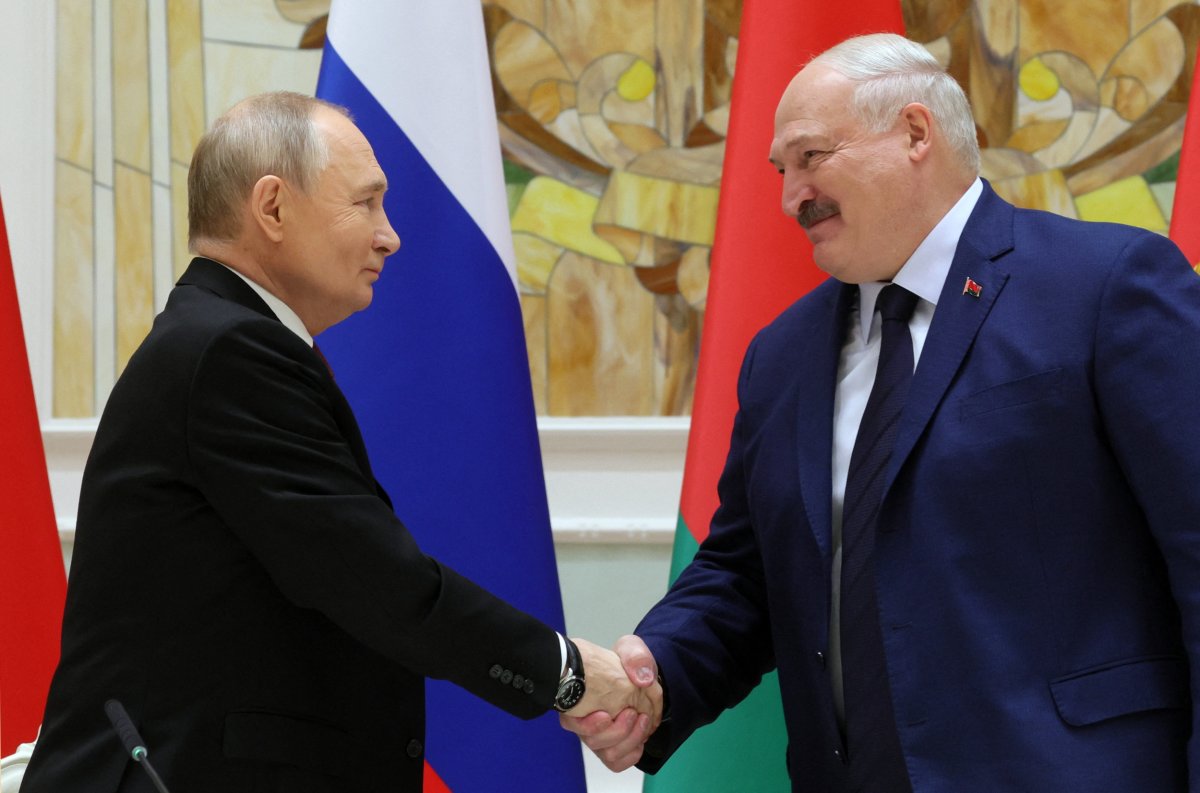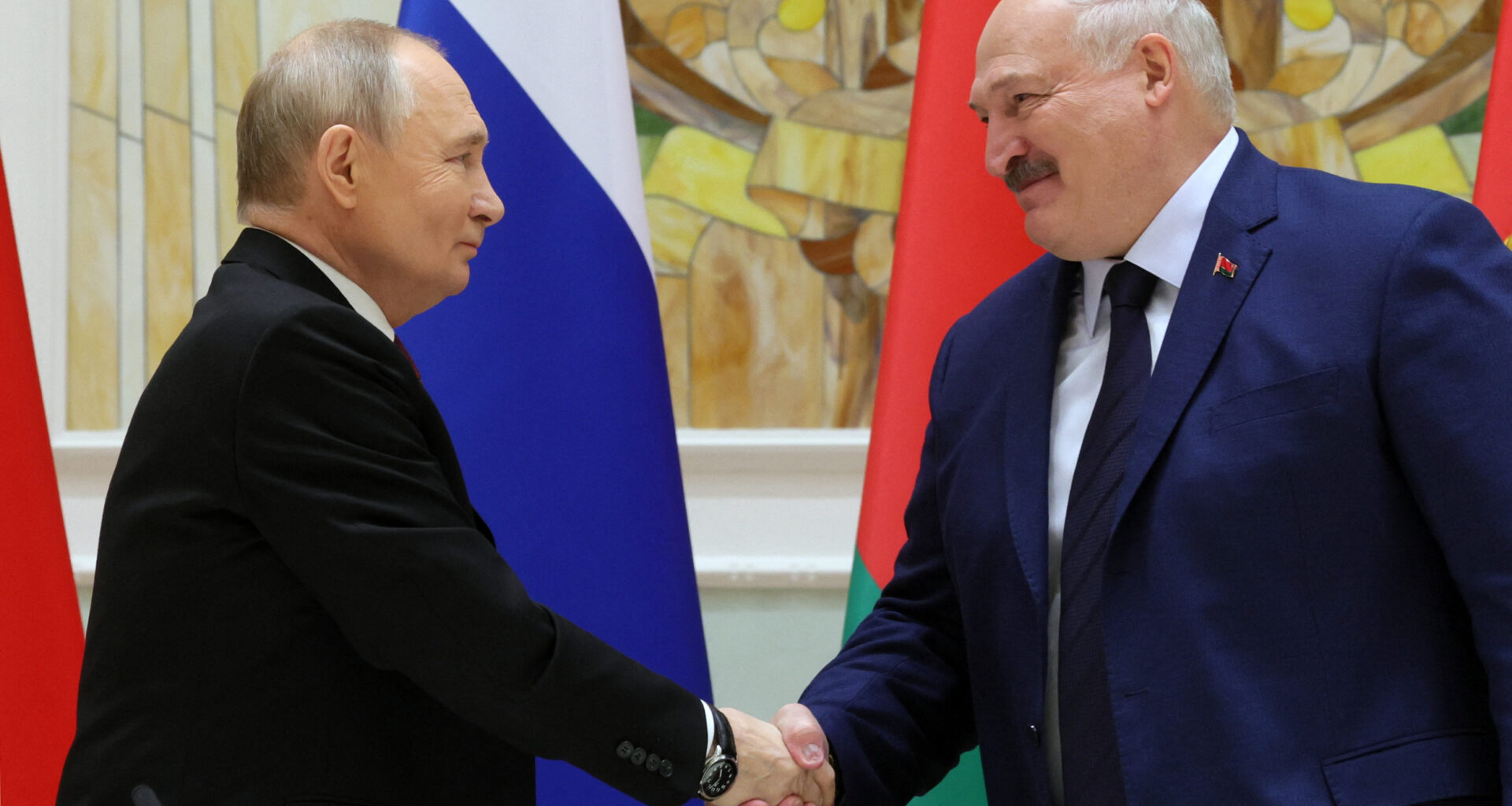An agreement struck between Vladimir Putin and his closest ally Alexander Lukashenko cements the status of Belarus as a “militarized satellite of Russia,” the Belarusian opposition has told Newsweek.
Russia and Belarus make up the Union State and its leaders signed in Minsk on Friday a new treaty which Putin said would allow both countries to use “all available forces and means” as part of the countries’ mutual defense obligations.
The treaty follows Putin’s decree on November 19, which formalized an updated Russian nuclear doctrine that included Belarus and lowered the threshold for atomic weapons use should Moscow deem either country under threat.
In announcing the new Union State treaty on security guarantees on Friday, Putin said the new document included the potential use of Russian tactical nuclear weapons which have been sent to Belarus but are controlled by Moscow.

Vladimir Putin and Belarus’ President Alexander Lukashenko at the presidential palace in Minsk on December 6, 2024. The pair have signed a new security treaty.
Vladimir Putin and Belarus’ President Alexander Lukashenko at the presidential palace in Minsk on December 6, 2024. The pair have signed a new security treaty.
VLADIMIR SMIRNOV/Getty Images
The leaders also signed 10 other Union State documents, including agreements that ranged from consumer rights, to energy and telecommunications.
But Franak Viačorka, senior adviser to Sviatlana Tsikhanouskaya, the Belarusian opposition politician who ran against Lukashenko in 2020 elections that were internationally seen as fraudulently keeping the latter in power, condemned the treaty as “another betrayal of Belarusian independence.”
“By aligning so closely with Putin, he isolates Belarus from the West and burns chances to drag Belarus out of Russian claws,” Viačorka told Newsweek. “This course only reinforces his status as a Kremlin puppet, serving Russian interests at the expense of the Belarusian people.”
Viačorka said the signing of these agreements cements Lukashenko’s regime’s role “as a militarized satellite of Russia. These moves escalate regional tensions and expose Belarusians to greater risks of military escalation.”
“We call on the international community to reject and not recognize these agreements,” he added. Newsweek has contacted the Belarusian foreign ministry for comment.
The Institute for the Study of War (ISW) said that the new treaty was part of the Kremlin’s continued “strategic effort to de facto annex Belarus and further expand the Russian military‘s presence in Belarus through the Union State framework.”
In his address on Friday, Putin referred to Russia’s deployment of nuclear weapons to Belarus and raised the specter that they may be used in the event of an attack by weapons of mass destruction or “repelling aggression” from adversaries.
This follows a spike in nuclear rhetoric from Putin after he boasted of launching on the Ukrainian city of Dnipro an Oreshnik intermediate-range ballistic missile which is capable of hosting nuclear warheads.
Lukashenko appealed to Putin to send the Oreshnik ballistic missiles to Belarus for Minsk to use at its discretion.
But the ISW said that the request is Lukashenko “likely trying to preserve Belarusian sovereignty against Moscow by advocating that Belarus control Russian weapons deployed in Belarus” and this is something that the Belarusian leader “has historically failed at.”
